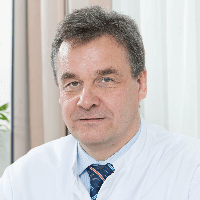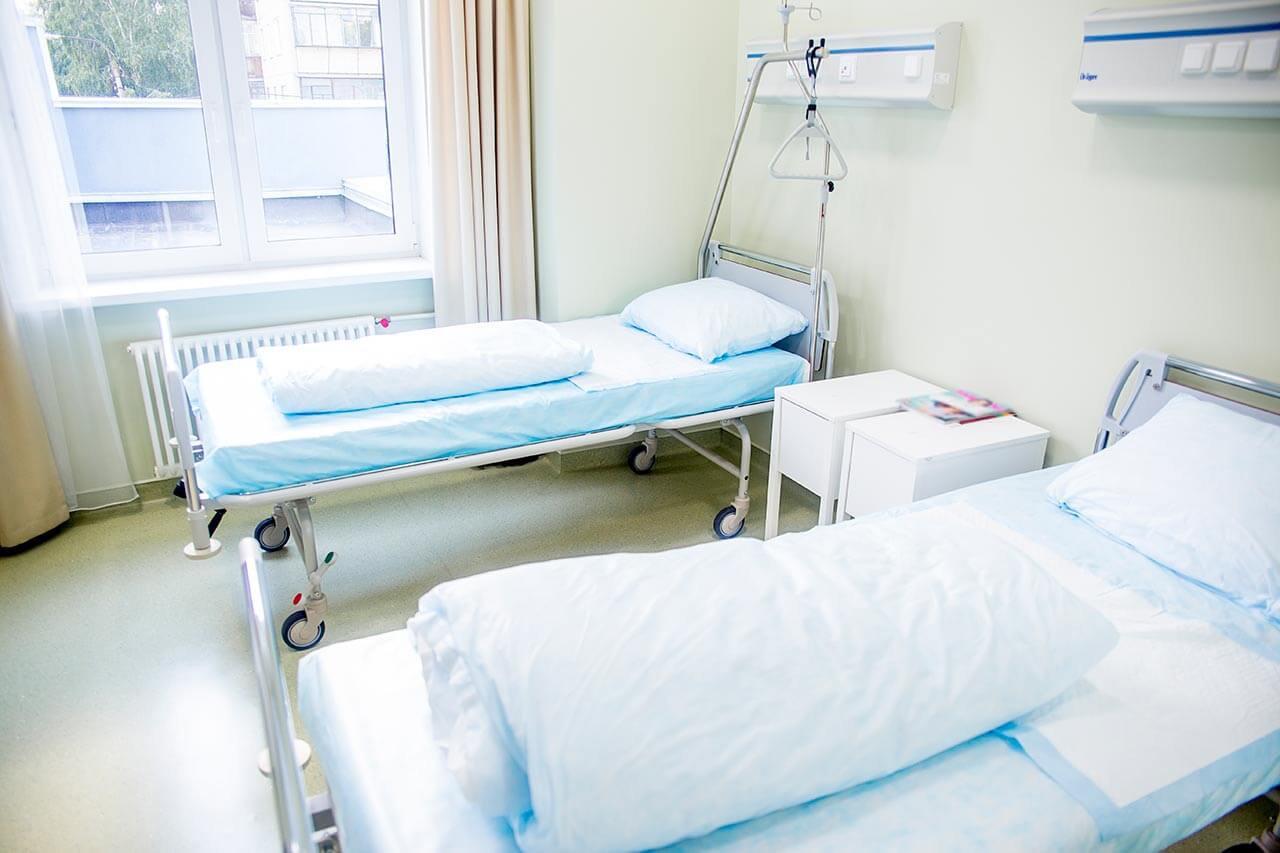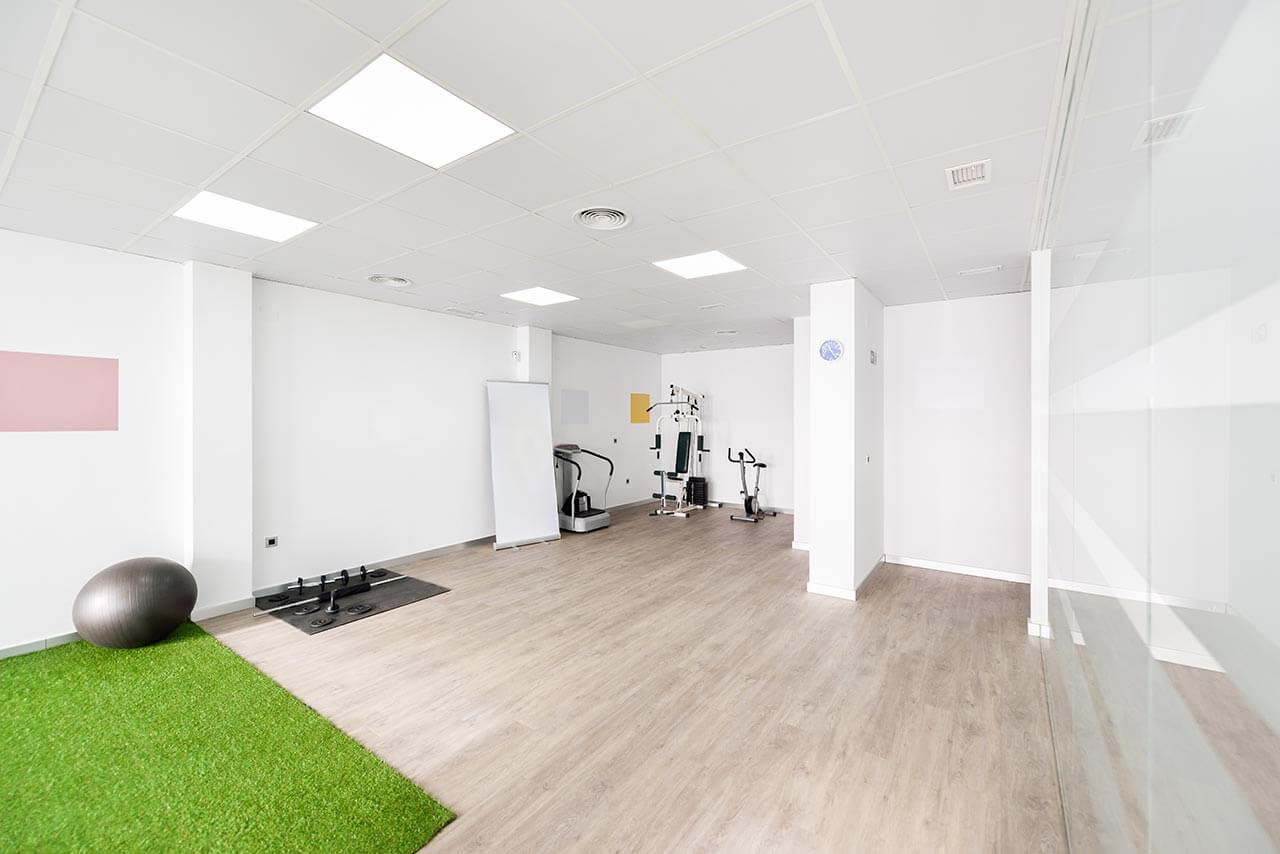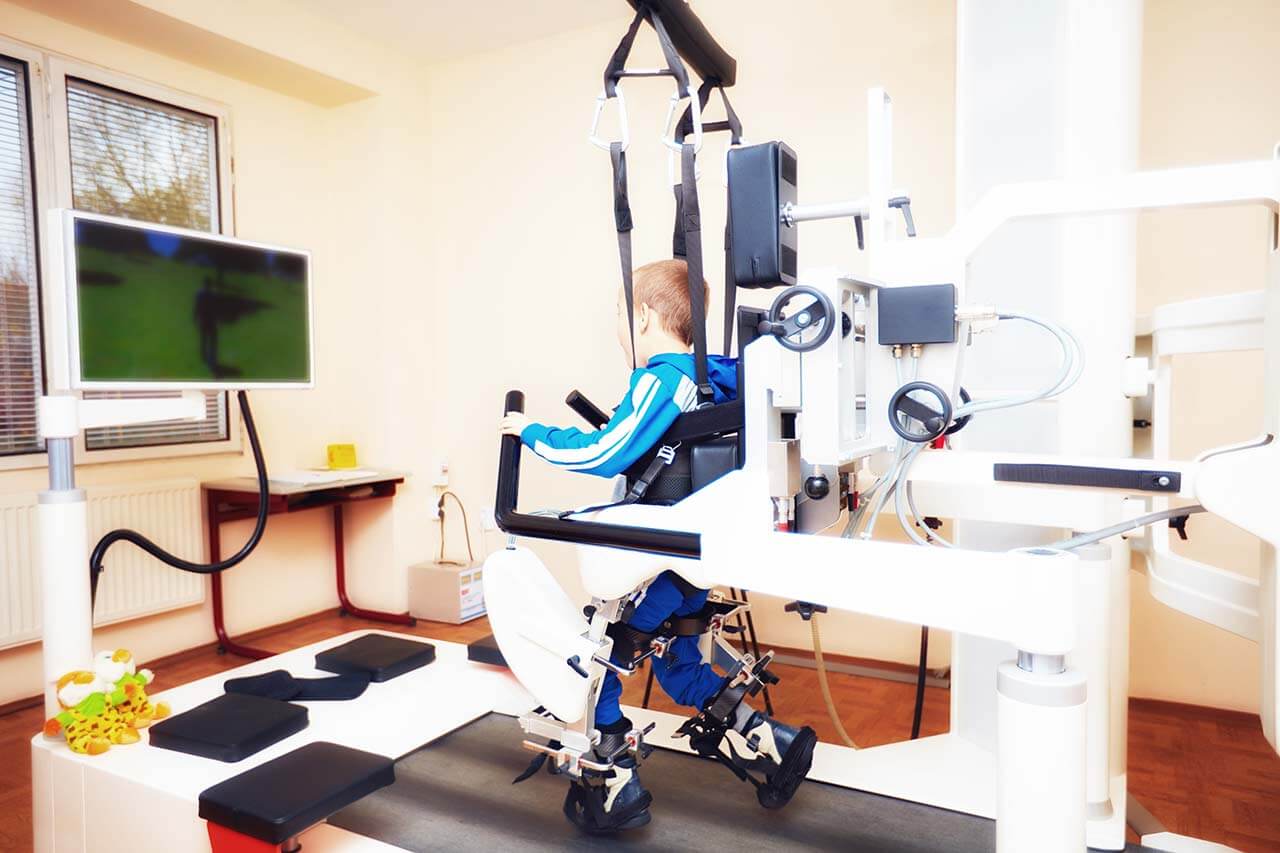
The program includes:
- Primary presentation in the clinic
- medical history, including family history
- complex neurological and orthopedic examinations
- CT / MRI / X-ray examination
- complex neurophysiological examinations
- consultation and curating by a neurourologist
- individual rehabilitation program, which includes:
- bladder training
- bowel training
- propriozeptive neuromuskuläre fazilitation (PNF)
- transcranial magnetic stimulation (TNS)
- orofacial stimulation of Castillo Morales
- functional propriotrening
- various methods of respiratory gymnastics
- Wii Fit training in the use of the balance
- neuropsychological therapy
- functional therapy of the upper extremities (ArmeoSpring)
- functional electrical stimulation / neurostimulation
- kinesitherapy (physiotherapy)
- biocontrol with feedback
- healing deep muscle massage
- neuromuscular electrostimulation
- acupuncture of spasticity and pain syndromes
- occupational therapy
- psycho-educational classes
- Individual physiotherapy
- microcurrent treatment
- fangotherapy / cryotherapy
- antispasmodic drug therapy (incl. Botox)
- mobilization of limb joints
- hydrotherapy / massage therapy / reflexology
- training on special trainers (Lokomat, exoskeleton)
- and etc.
- day-and-night care nurses
- stay in the hospital with full board
- symptomatic and drug therapy
day-and-night |
Service
You may also book:
 BookingHealth Price from:
BookingHealth Price from:
About the department
The Department of Adult Neurological Rehabilitation at the HELIOS Clinic Hattingen offers the full range of rehabilitation programs for patients with neurological disorders. Of particular interest is early rehabilitation. In addition, the department provides neuropsychiatric rehabilitation. This type of rehabilitation takes place in a separate enclosed building surrounded by a garden. The clinical practice involves the use of modern rehabilitation procedures, including state-of-the-art robotic systems for training balance, gait and restoring hand functions. The highly qualified specialists work with patients, who surround them with care and do everything possible to reintegrate into their usual lives. The Chief Physician of the department is Dr. med. Axel Petershofer.
The department has at its disposal modern diagnostic equipment. The patients can undergo such diagnostic tests as radiography, MRI, including MR angiography, ultrasound scanning, electroneurophysiological studies, video endoscopic diagnostics of swallowing, ECG, etc. The diagnostic tests allow doctors to assess the patient’s condition and develop an optimal rehabilitation scheme for him.
The classical types of physical therapy to restore mobility are supplemented by rehabilitation measures using professional robotic systems. The department uses such innovative equipment as the Erigo® tilt-table, the Lokomat® robotic orthopedic simulator for restoring gait, the Andago® simulator for more intensive gait training, and the Armeo®Spring simulator for restoring hand and arm functions. The training on robotic devices gives an effective result. Such therapy is mostly prescribed for paraplegia, stroke, traumatic brain injuries, multiple sclerosis and Parkinson's disease.
The indications for neurological rehabilitation are the following diseases and pathological conditions:
- Traumatic brain injuries
- Brain hemorrhage in case of ruptured aneurysm, subarachnoid hemorrhage
- Spontaneous bleeding from the cerebral vessels (for example, due to arterial hypertension, vascular malformations)
- Benign and malignant neoplasms of the brain, spinal cord and peripheral nerves (for example, astrocytoma, glioblastoma, meningioma, ependymoma, medulloblastoma, as well as metastases)
- Brain damage due to circulatory disorders or hypoxia
- Spinal diseases with a particular focus on spinal cord lesions (complete transverse spinal cord injury syndrome), nerve root and peripheral nerve lesions (herniated disc, spinal stenosis, tumor, bleeding, injuries)
- Malformations of the brain and spinal cord (hydrocephalus, syringomyelia, meningocele)
- Peripheral nerve lesions
- Conditions after neurosurgical operations for traumatic brain injuries, spinal cord injuries, brain or spinal cord tumors, stroke, etc.
- Other diseases
The department’s therapeutic range of services includes:
- Physiotherapy (individual and group training)
- Training using the Erigo® tilt-table to restore balance while standing
- Forced-use therapy
- "Music and movements" training complex
- Kinesio taping
- Therapeutic golf rehabilitation
- Relaxation procedures
- Manual therapy (classical massage, massage of reflexogenic zones on the feet, colon massage, manual lymphatic drainage, compression procedures)
- Hydrotherapy (four-chamber baths, therapeutic baths with special additives, Kneipp therapy)
- Heat therapy (the use of special mud, infrared light, hot compresses)
- Electrotherapy
- Ergotherapy
- Perfetti method
- Bobath therapy
- Affolter approach
- Training to restore self-care skills (personal hygiene, eating, etc.)
- Neuropsychological care to eliminate attention, memory, perception disorders, personality disorders
- Speech and language therapy (individual and group training) to restore speech and eliminate problems with swallowing
- Remedial gymnastics (mainly group training)
- Balance training
- Endurance training
- Training to improve motor function
- Lokomat® training
- Robotic rehabilitation therapy
- Training on the special Erigo® tilt-table
- Training on the Lokomat® robotic orthopedic simulator for gait restoration
- Training on the Andago® simulator for more intense gait training
- Training on the Armeo®Spring simulator to restore the functions of the hand and arm
- Art therapy
- Music therapy
- Other rehabilitation services
Photo of the doctor: (c) VAMED Gesundheit Holding Deutschland GmbH
About hospital
The HELIOS Clinic Hattingen is a highly specialized rehabilitation center with the top-class standards of medical care. The medical complex began its clinical practice in 1993, and today it enjoys the status of one of the leading in Germany in the field of its competence.
The specialization of the clinic covers a wide range of rehabilitation services for patients with neurological diseases. The clinic deals with the treatment of patients of various age groups, ranging from young children to adults and elderly patients. In addition, a large number of patients from foreign countries come here every year, which testifies to the outstanding treatment results and the impeccable reputation of the medical facility.
In total, the clinic has 210 beds for adults and 60 beds for children and adolescents. The therapeutic offer covers the rehabilitation of phases B, C and D. The clinic includes an Intensive Care Unit for intermediate care of patients after a recent acute neurological disorder. There is also a Section of Neuropsychiatric Rehabilitation with a closed building and a garden, which is part of the clinic and is used for therapeutic purposes.
The clinic is certified in accordance with the quality standards of the German Society of Hospitals in Schleswig-Holstein and takes part in the quality management program for the rehabilitation treatment of public health insurance schemes, and is also a certified partner of the University of Health in Bochum (Hochschule für Gesundheit Bochum).
The main value for each employee of the clinic is the health and well-being of the patient. All rehabilitation programs are adapted to the specific needs and wishes of patients. The relatives of the patient are also involved in the process, which contributes to the faster achievement of good results.
In addition to providing high-quality therapeutic services, the clinic staff takes care of maintaining a pleasant and friendly atmosphere, in which the patient will feel as comfortable as possible.
Photo: (с) depositphotos
Accommodation in hospital
Patients rooms
The patients of the HELIOS Clinic Hattingen live in cozy rooms with all amenities. Each patient room has an ensuite bathroom with shower and toilet adapted to the needs of people with disabilities. The furnishing of the patient room includes a comfortable bed with an orthopedic mattress, a bedside table, a wardrobe for storing personal belongings, a table and a chair, a TV, a telephone. If necessary, it is possible to connect to the Internet.
Meals and Menus
The patient and the accompanying person are offered a daily choice of three menus. If you are on a specific diet for any reason, you will be offered an individual menu. Please inform the medical staff about your dietary preferences prior to the treatment.
Further details
Standard rooms include:
Religion
The religious services can be provided upon request.
Accompanying person
Your accompanying person may stay with you in your patient room or at a hotel of your choice during the inpatient program.
Hotel
You may stay at the hotel of your choice during the outpatient program. Managers will help you choose the most suitable options.




